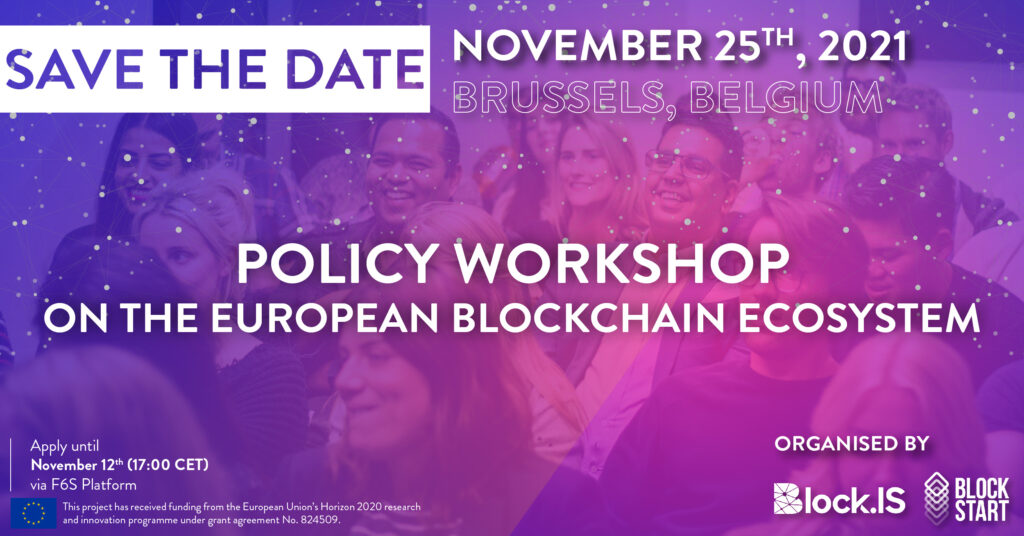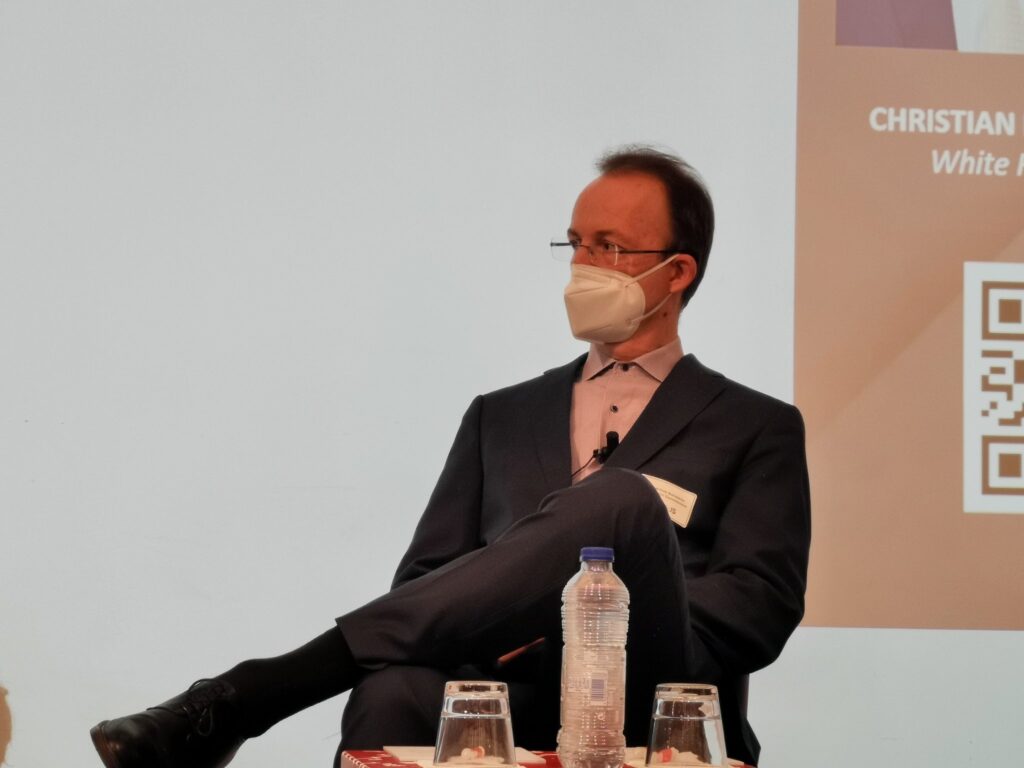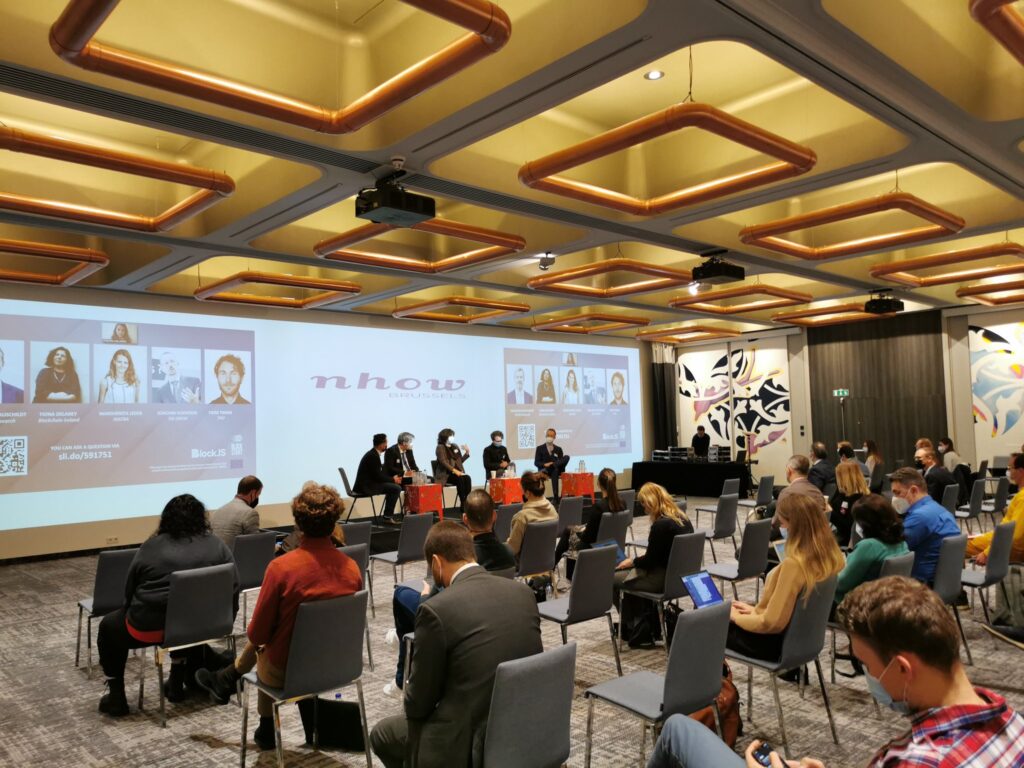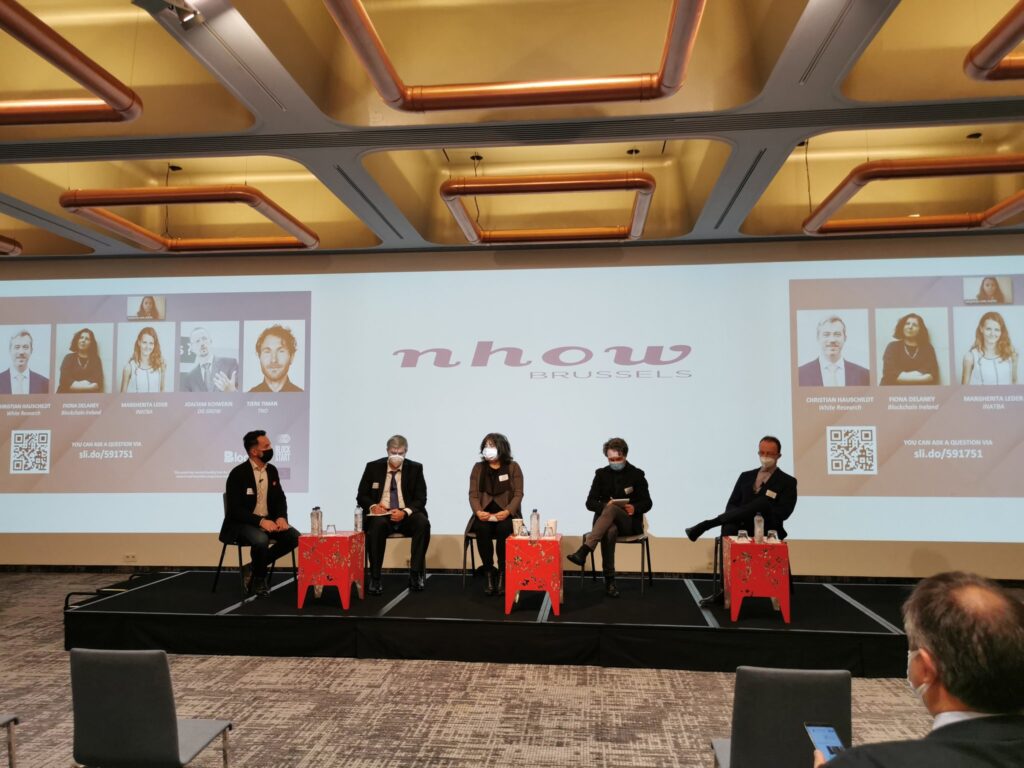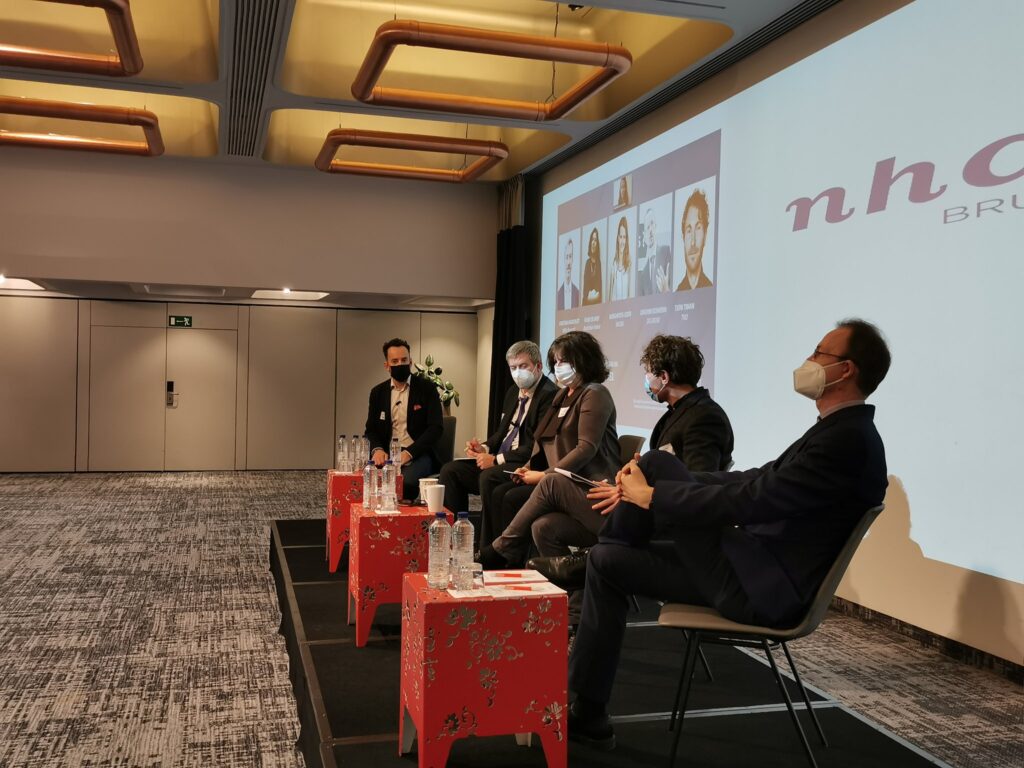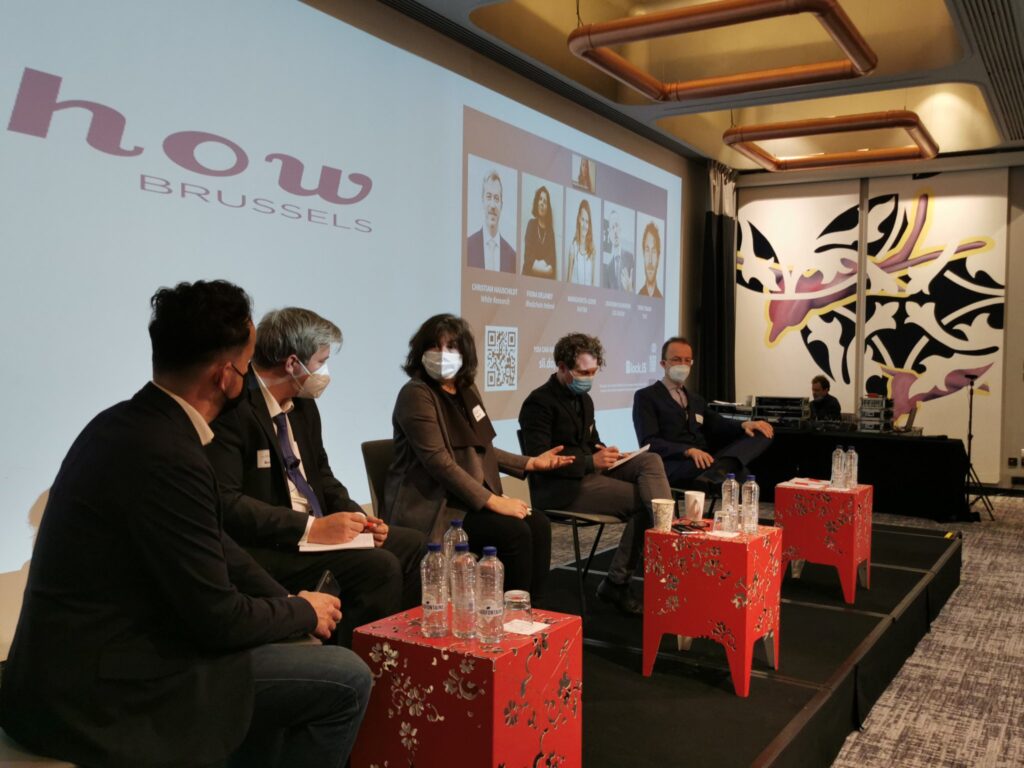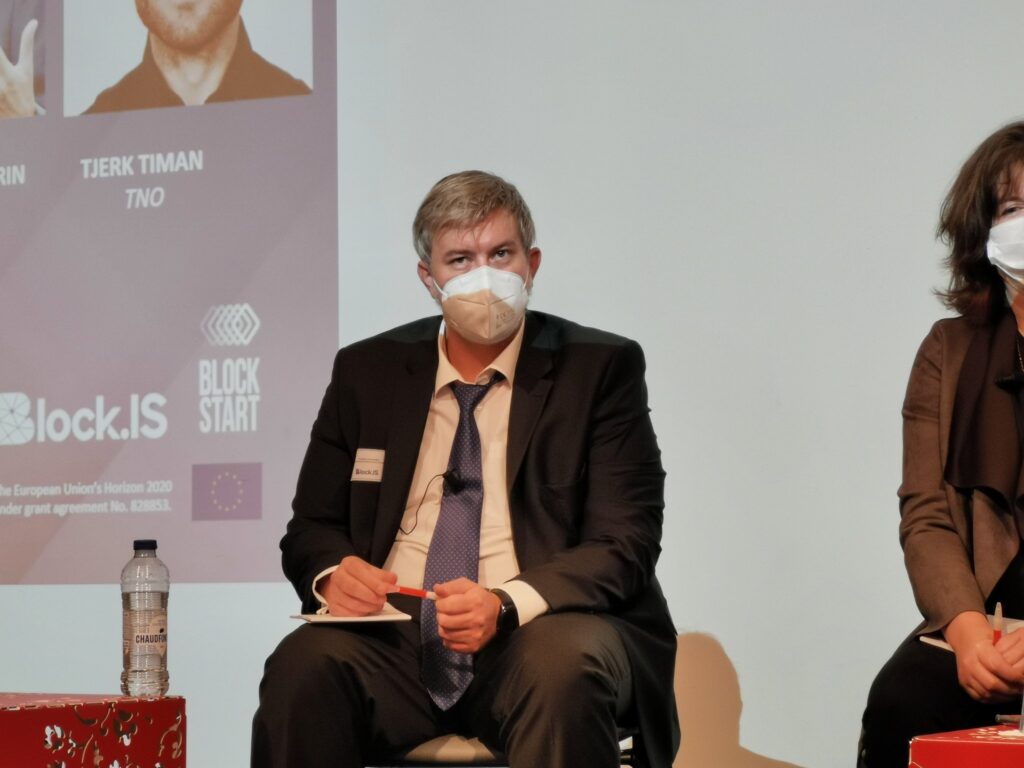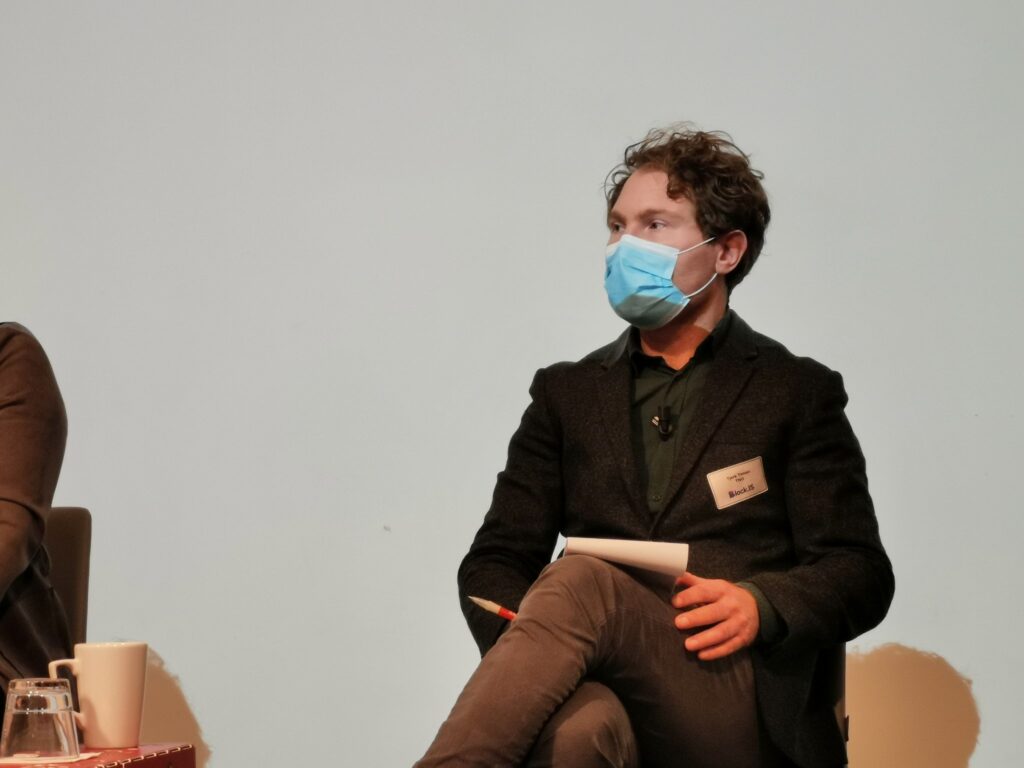On November 25th, partners of Block.IS and BlockStart blockchain startup acceleration programmes organised a blockchain regulation and policy workshop on “How European policy initiatives can enable the future of blockchain”. The goal was to discuss the current state of the regulatory landscape in Europe, identifying the best practices and moments for advancement and providing input into removing regulatory barriers for SMEs to adopt DLT and developing a compelling legal framework.
First on the stage was Christian Hauschildt of EBOF (European Blockchain Observatory and Forum) and White Research. Bringing to the audience the thematic report “State of the EU blockchain ecosystem” Mr Hauschildt has reflected on the current challenges and opportunities in the 29 European countries (the EU Member States + the UK and Switzerland), their respective national entrepreneurial environment, initiatives, legislative framework, size of the European blockchain industry, as well as a number of blockchain/crypto business in Europe as some of the factors shaping this market. Business ecosystem, user communities and academic initiatives are the 3 indicators of ecosystem maturity.
Emphasising the importance to tackle traditional sectors such as agriculture, Fiona Delaney has, on behalf of the Origin Chain Networks and Blockchain Ireland, shed light on the current challenges the Agrifood industry faces, how Big Data and blockchain are the solutions to these challenges and a way forward in coupling tech and food tracing.
In addition to introducing the Origin Chain Network’s work in blockchain and agrifood, Mrs Delaney has also showcased the state of the Irish blockchain innovation ecosystem and the vision around which startups gather. One of the great initiatives #StartupsLunchbox in a form of podcast events sheds light on how to bring about the innovation and push for ongoing development even in times of COVID-19 and lack of physical events, issues of the legislative framework in which these startups operate and other difficulties stemming from talent migration.
In order to provide a rounded perspective, an important input came from Joachim Schwerin, the Principal economist at EC DG GROW. Mr Schwerin has provided valuable insight on the process of the digitalization of SMEs – opportunities and future broadening of the spectrum of available finance, how executing payments in a safe, easily accessible and flexible manner while also saving cost and time will be possible due to integration with the blockchain while at the same time reducing dependency on an opaque chain of intermediaries.
In the field of blockchain tokenised crypto, Mr Schwerin singled out the pain points of the digitalisation process – disruptive innovation happens at a pace faster than legislation and it catches markets and wider scope of stakeholders dictating future events. Therefore, legislation needs to be the one to catch up. Next to the ongoing initiatives that the EU supports, SME digitalization strategy and 2 concrete blockchains regulations (education and finance-related) are the tools to be further developed. Decentralized innovation is an important part but there needs to be cooperation with legislative frameworks rather than an isolated path to make the innovations actually work for the people.
Margherita Leder, Board Member & Co-Chair Education WG INATBA and COO at TMP GROUP took the stage via Zoom introducing INATBA’s work and of important initiatives that facilitate positive change in the blockchain system starting off with the importance of education on blockchain, data protection challenges and digitalization of euro.
Ms Leder highlighted the importance of addressing the actual needs of the SMEs and the clarity of regulations as those needing to be the focus of the conversation. That is how the space for innovation that is feasible is created. Factors such as competition law also affect the work of the SMEs as “small players”. Especially on the market side, if SMEs are struggling in pushing their solutions and if it becomes too complicated then effectively those players are not able to foster significant connections to the big ones. The solutions they introduce do not have the space and ties to provide a necessary breakthrough and application in the market.
The last speaker, Tjerk Timan from TNO continued the conversation on the policy landscape and current challenges by posing an important question: why does blockchain ruffle so many feathers? Different maturity of the blockchain policy across the Member States including legislation, strategies on a national level, the use of blockchain by the public sector is all the relevant factors to consider. Addressing the key carriers of the technology – the startups, they experience difficulties in navigating through relevant legislation, dealing with national authorities, adapting their solutions to sectorial requirements.
Interlacing the law and markets, moving from de jure to de facto regulation also in soft law and standard-setting, balancing market forces and lobbying (AI being one similar case as well) are all the factors to consider, tackle and engage in order to make the next necessary steps. Hard-coding social, ethical and legal forms into technology; solving the problem of ex-post regulation and Collingridge dilemma; link to blockchain, DLTs as a possible form of legal tech and large field in f.i. privacy engineering and recently AI (legal tech).
Mr Timan had stated the problems that need to be discussed, providing an introduction to the panel discussion. “Who” are norms? Laws need to be flexible and argumentative – how flexible can coded law actually be?
Following the speeches, the speakers joined in a panel discussion opening up the floor to the audience as well. Moderated by Vytautas Černiauskas of CIVITTA, the panel participants have shed light on the bottlenecks in the blockchain innovation, borders of the crypto space, self-governance and risk-taking for the SMEs engaging with the technology. Panellists discussed topics from managing personal identity systems, connections of past financial crashes with slow-paced regulation, legislation vs. standardisation, etc. but more importantly – what happens after laying out the problems? How does a problem-solving mindset come into play and acts in the process of a co-creation process between SMEs, large players and agencies, financial authorities and other regulatory bodies?
Getting through the administrative and tech jungle themselves, the panellists have provided different perspectives and ways forward. Recommendations of the panellists:
- Christopher: info is easily accessible. There are no simple solutions but the access is open and easily understandable and that is the first step towards better navigation through the systems and markets.
- Tjerk: Just like resident artists, we need a regulator resident!
- Margherita: simplify as much as possible and avoid unnecessary layers in order to create free and accessible ecosystems.
- Joachim: the biggest community is gaming space that is using crypto and NFTs. Look at the right stuff, what has already been discussed and what is really a burning issue. Look into philosophy and self-organisation as well as other trends that want and need to be translated into the community!
- Fiona: it’s not only about mindset – it is about trust. We are talking about innovation within the system! Those outside main streams face different types of exclusion even in the privileged world – blockchain solves it – it is merit-based, it is ground-breaking and it also brings equality and pushes for human not only tech development.
